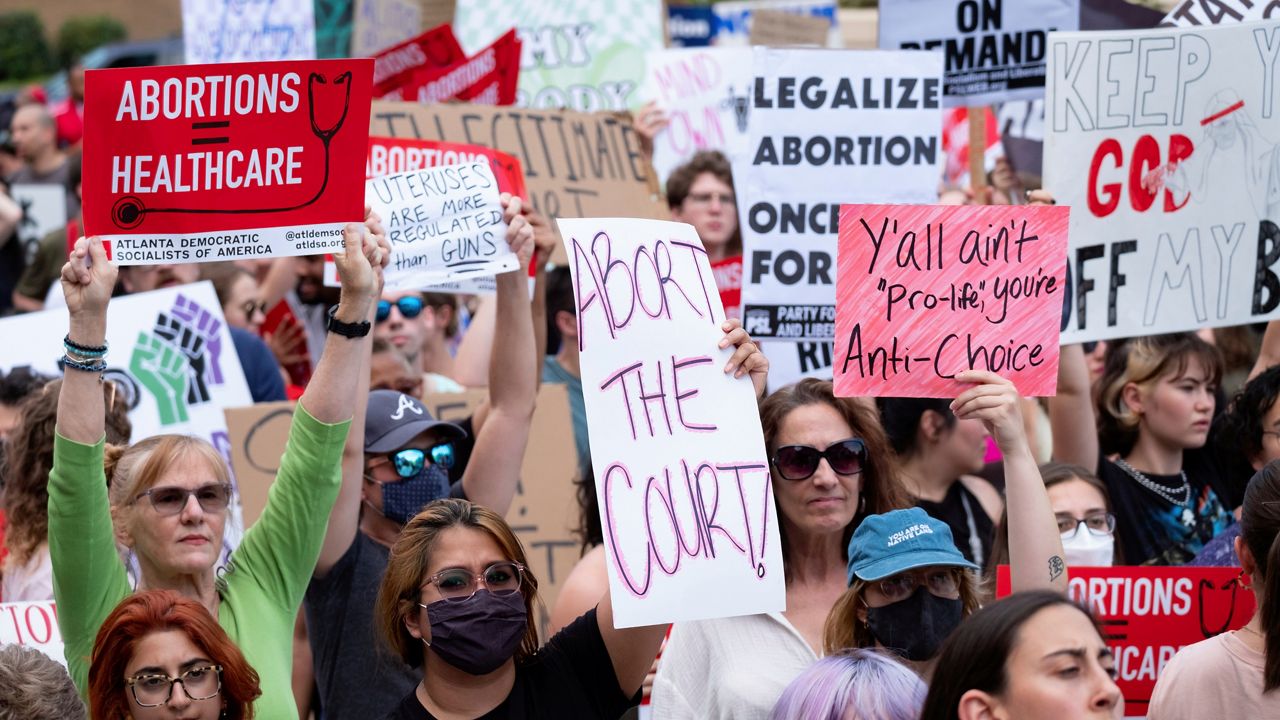A pair of new polls released in the last 24 hours released in the wake of the Supreme Court overturning Roe v. Wade suggest that Democrats are decidedly more motivated to vote than their Republican counterparts in November’s midterm elections which could give the party’s leadership some hope of maintaining control of Congress in what previously looked to be a tough election cycle.
According to a CBS News/YouGov poll released Sunday, 50% of Democrats said that they are more likely to vote in the midterm elections as a result of the Supreme Court overturning Roe, compared to just 20% of Republicans.
A survey from NPR/PBS NewsHour/Marist suggests that among registered voters, 78% of Democrats said the Supreme Court’s ruling makes them more likely to vote in November, a full 24 points higher than Republicans (54%). The poll also gives Democrats a 48-41 advantage in which party they want to see control Congress, compared to 47-44 in favor of Republicans in April of this year.
"With the midterm elections less than five months away, the decision by SCOTUS has sent shockwaves through the electorate," Lee Miringoff, Director of the Marist College Institute for Public Opinion, wrote in an analysis of the survey results. "Men are +12 points and women are +18 points more likely to support congressional candidates who pledge to codify the protections of Roe v. Wade.”
The survey said that 51% of voters would back a candidate that would vote to codify the protections previously established in Roe, including 47% of independents, compared to just 36% who responded they would definitively vote against a candidate who took such a stance.
Both polls suggest that a majority of Americans oppose the Supreme Court’s ruling — the NPR/PBS NewsHour/Marist survey showed 56% opposed to the ruling, and 59% in the CBS News/YouGov poll disapproving of the high court overturning Roe.
Among women, that figure is even higher: Fifty-nine percent in the NPR/PBS NewsHour/Marist poll oppose the court overturning Roe, and 67% in the CBS News/YouGov poll.
Despite this, one expert told Spectrum News that he does not think the decision will “substantially change the contours of the midterm election.”
“I do think that the conventional wisdom is right that this will serve to help the Democratic Party mobilize some of its voters and get people out to the polls at a time when they might not otherwise,” Ziad Munson, a sociologist at Lehigh University and author of “Abortion Politics,” said in an interview Spectrum News. “And so in that case, it will make Democrats more competitive in some races, but I don't think that the overall complexion of the election is likely to change.”
“There's decades of research on the abortion issue that shows that it is seldom the sort of major issue that people use when they actually go to the polls,” Munson added. “Abortion is really important for its sort of symbolic value to many voters. It's a sort of flag that people use to say what side of the partisan divide they're on, and politicians wave that flag quite a bit.”
“But when you actually ask voters, what are the top issues that they voted on and so forth, abortion is seldom mentioned,” he continued. “I think it's going to be more likely to be mentioned in this cycle, but it's still not going to be the top issue in most races.”
The NPR/PBS NewsHour/Marist survey found that 56% of Americans are concerned that the court could revisit and potentially overturn the rights to contraception, same-sex marriage or same-sex relationships.
“Digging deeper, 63% of women, including 74% of suburban women, are also concerned that the Court’s decision is a harbinger of things to come,” Miringoff added.
In a concurring opinion to last week’s abortion ruling, Justice Clarence Thomas wrote that the court should “reconsider” the rulings which guaranteed those rights.
"In future cases, we should reconsider all of this Court’s substantive due process precedents, including Griswold [contraception], Lawrence [same-sex relationships], and Obergefell [same-sex marriage],” Thomas wrote. “Because any substantive due process decision is ‘demonstrably erroneous’ … we have a duty to ‘correct the error’ established in those precedents.”
Of that figure, 89% of Democrats, 55% of independents and 18% of Republicans said they were either “very concerned” or “concerned” that the overturning of Roe could lead to those cases being reconsidered.
The CBS News/YouGov poll showed that a majority of Americans are similarly concerned about the court revisiting those rulings, with 57% thinking the high court will reconsider same-sex marriage and 55% believing it’s likely the court will limit access to birth control.



